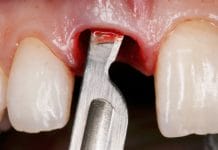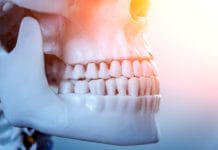Several systematic reviews have studied the temporary general health effects of Ramadan intermittent fasting (RIF) on the body. However, reports on dental health mostly resemble casual mentions rather than actual in-depth studies.
Some of the general health effects that have been studied include effects on the immune system, cardiovascular function, dietary intake and body composition or weight, glycemic control, kidney function, and sleep. But what specifically occurs in a person’s mouth during the fasting of Ramadan? The Impacts of Ramadan Intermittent Fasting on Saliva Flow-rate and Metabolic Data: A Systematic Review looks to specifically identify and measure salivary flow rate (SFR) and other metabolic parameters such as cortisol, glucose, melatonin, and uric acid.
The ultimate goal is to determine what we can do to help our patients maintain great oral health during Ramadan.
RIF Impact on SFR
This review showed that the salivary flow rate decreased by an average of 10% during fasting, reaching even lower points because the individuals’ saliva isn’t stimulated by the smell and taste of food and drink. At the same time, the lack of jaw movement, or the orally sedentary behaviors during this time, decreases metabolism and slows down the production of saliva.
This may lead to xerostomia and difficulty swallowing when able to do so. There may not be enough saliva to neutralize acids and clean bacteria from the oral cavity, so it is suggested that several times per day, without swallowing, swish with water to rinse the mouth out.
RIF Impact on Melatonin and Cortisol
A circadian clock determines the release of melatonin in saliva and plasma. Melatonin increases feelings of tiredness and fatigue. So, melatonin is decreased during the daytime and increased at night. Slightly and temporarily, Ramadan can turn that circadian clock on its head. Just as sleep is affected, so is saliva flow and the ability to heal.
Cortisol balances blood glucose and determines when it should be sent out into the bloodstream to match the energetic demands of our bodies. Much like melatonin, cortisol is regulated throughout the day. Salivary cortisol measures can rise exactly when they aren’t desired to, giving your patients a mouthful of sugars, naturally.
RIF Impact on Salivary Metabolic Data
Alkaline phosphate (ALP) is produced in the salivary glands and the alveolar bone of the jaw. The levels of ALP are known to directly determine the occurrence and severity of periodontal diseases and instances of caries since it is directly involved in calcium and phosphate binding. While this particular salivary change hasn’t been determined to be a definitive cause of periodontal disease and caries, there may be a higher risk.
Uric acid is involved in speedy healing and bacterial/viral defense, which can decrease during Ramadan.
In Closing
The researchers conclude, “There is a general trend toward a decrease in SFR and a decrease in the content of the majority of the biomarkers investigated, with the exception of ALP and uric acid. These changes cannot be easily attributed to any single factor, especially because of the lack of information on hydration status, dietary habits, physical activity, and hygiene habits. Although the findings of this systematic review are interesting, scientific evidence should be interpreted carefully because studies of the impact of RIF on saliva parameters are scarce. This is mostly due to the lack of accurate methodological details or variations in the investigated saliva parameters and the employed methodologies. Furthermore, the authors have provided some recommendations for designing future studies related to the impact of RIF on salivary parameters.”
The researchers suggest dental professionals can educate their patients who observe Ramadan to:
(i) adopt a well-balanced diet with sufficient hydration before Sahur and after Iftar;
(ii) brush teeth, at least after Iftar and just after Sahur, before the dawn;
(iii) rinse mouth without swallowing water for better biofilm control and reduction of halitosis;
(iv) take care of the oral cavity, particularly for patients with chronic systemic diseases, especially with metabolic disorders (e.g., diabetes mellitus), in order to avoid the progression of a preexistent pathology (e.g., periodontal disease, dental caries).
The researchers suggest that dental clinicians need to treat patients observing Ramadan with special precautions (e.g., administering intramuscular or trans-dermal treatment instead of oral agents) to respect their religious practices.











